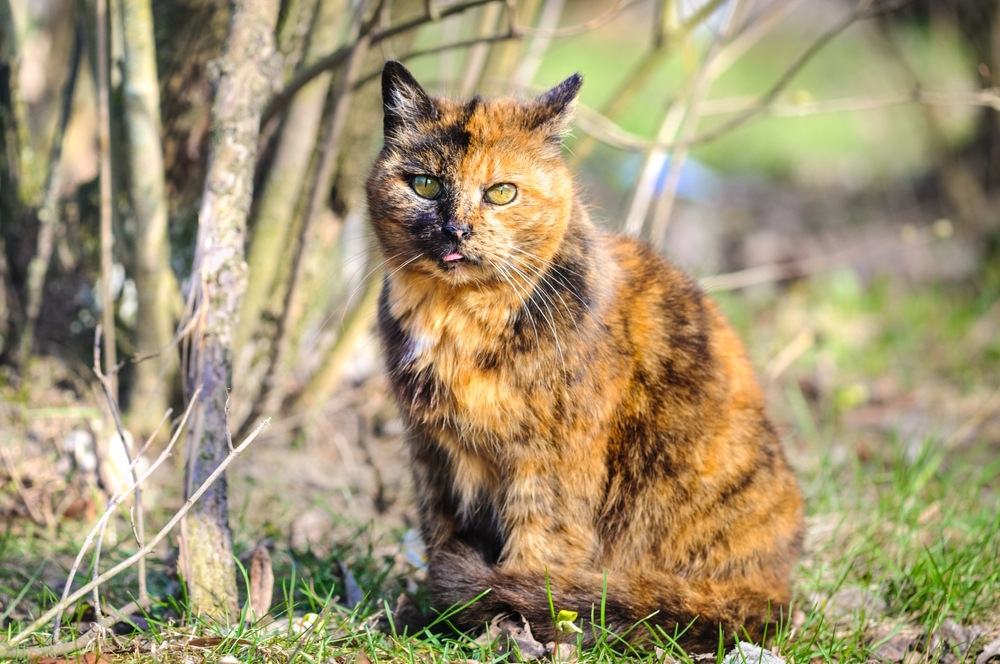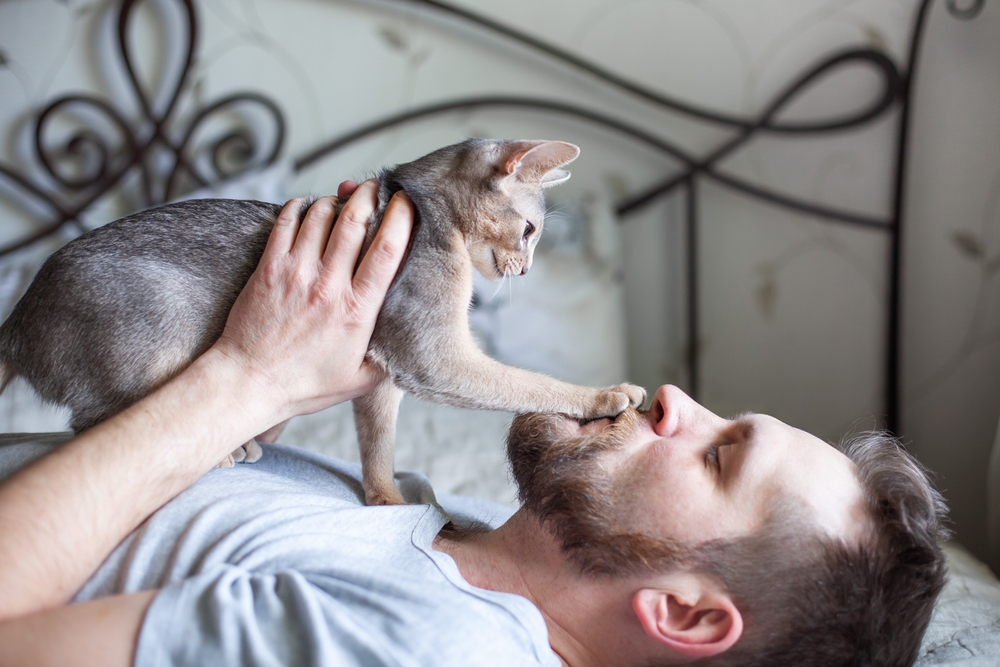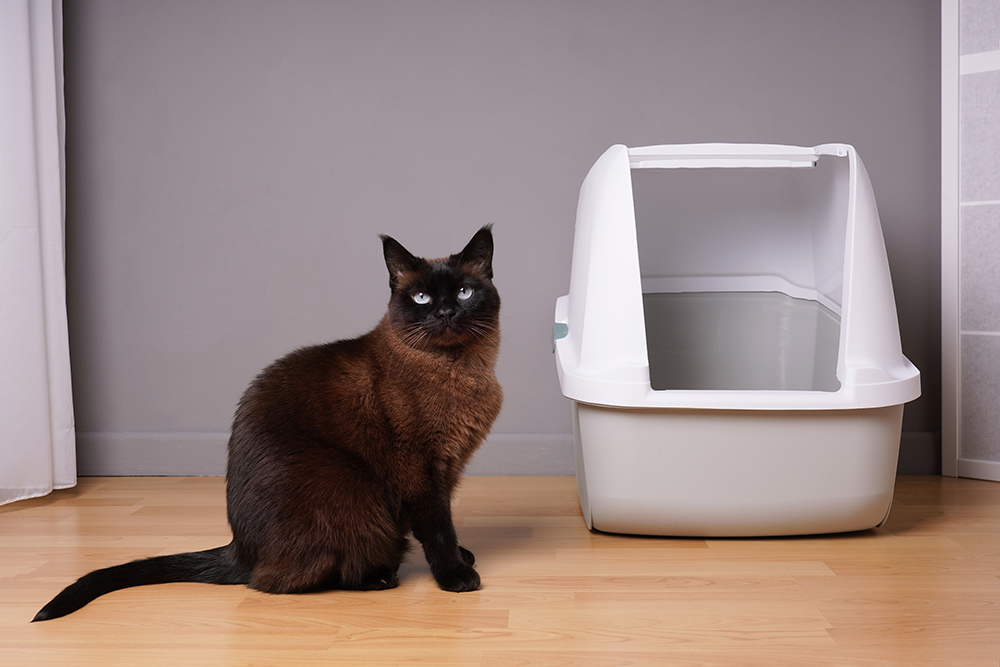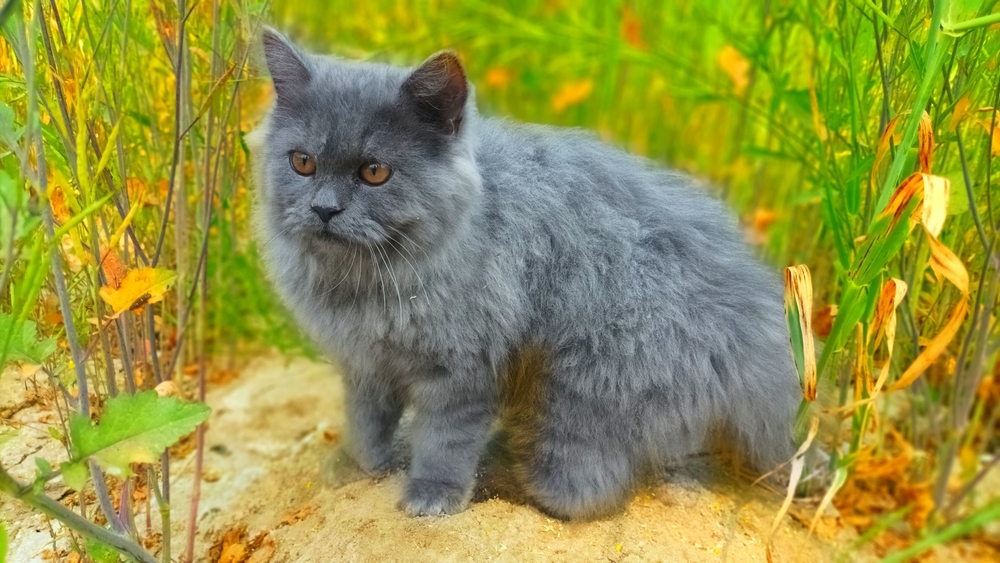Cats often express their emotions—which can include anger and aggression—through various sounds. If your cat is making angry sounds that have you worried, it’s important to understand the cause and find ways to calm them down.
Keep reading while we list the most common angry cat sounds and provide tips for calming them down so you can get your home back to normal.

The 4 Angry Cat Sounds
1. The Hiss
Hissing is a sharp, hissing sound often accompanied by a distinctive posture. The cat opens their mouth, exposes their teeth, and exhales forcefully, creating the sound. Cats hiss when they feel threatened or cornered as a way to deter potential aggressors. It also makes the point that the cat is not comfortable and is ready to fight.
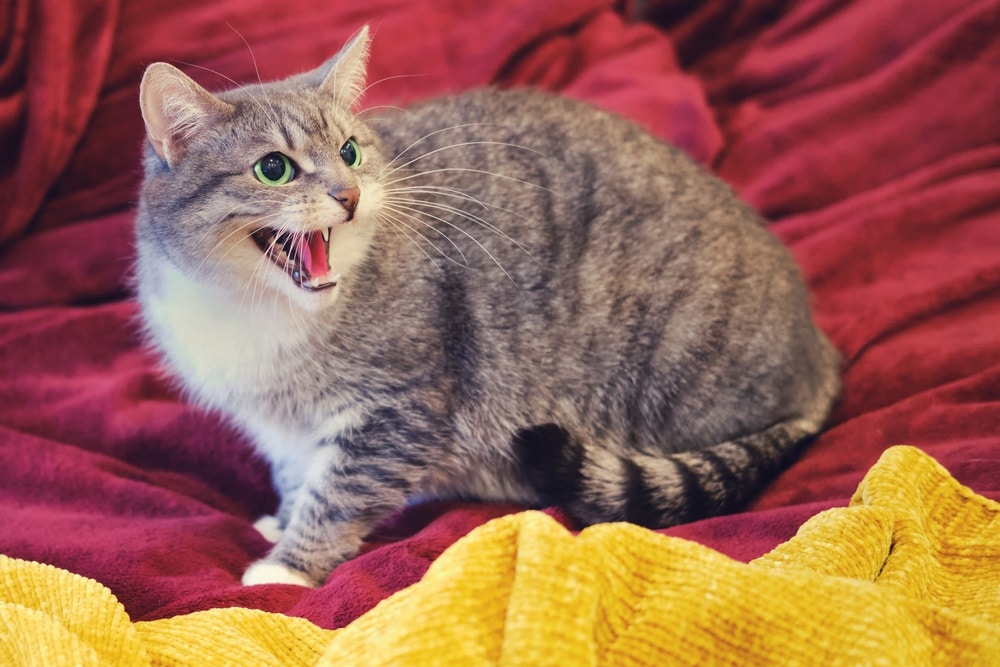
2. The Growl
Growling is a low-pitched, rumbling sound produced in the cat’s throat. The intensity can vary from a soft murmur to a more pronounced growl, and it can get louder as the cat becomes more tense. It’s a clear warning sign that the cat is agitated and serves to establish boundaries and discourage the offending party from getting any closer.
3. The Yowl
Yowling is a loud, elongated vocalization that can be quite intense. It is distinct from regular meowing and may include a variety of pitches and tones. Cats yowl for different reasons: it can be a distress call, expressing discomfort, loneliness, or a desire for attention.
Unspayed or unneutered cats sometimes yowl during the mating season to attract potential mates. Cats may also yowl during territorial disputes or when they feel threatened. They can yowl when they are in pain as well.
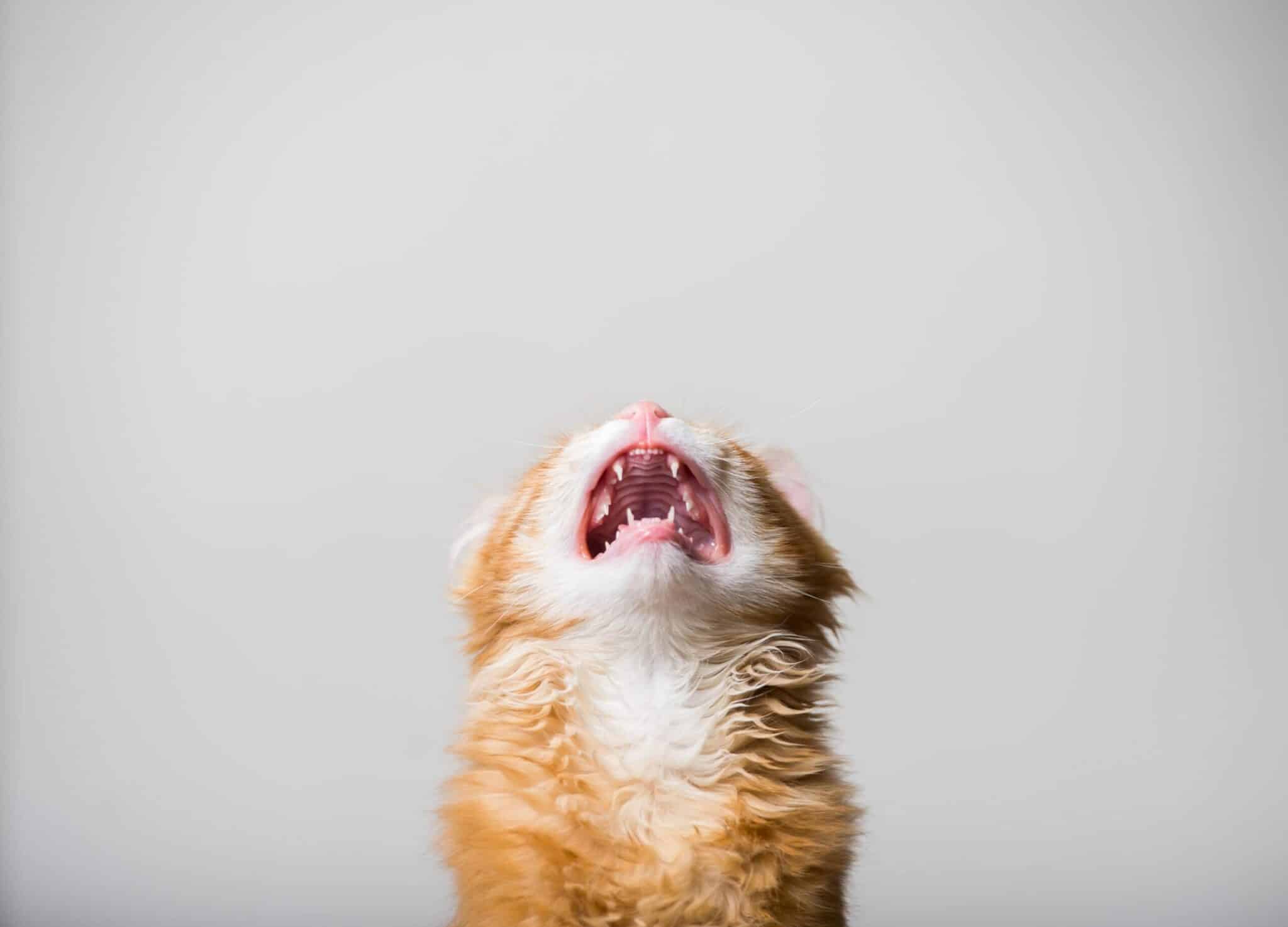
4. The Scream
Screaming is a high-pitched, loud, and intense vocalization that can be alarming to hear. Cats scream when they are in extreme distress or facing a significant threat. You may frequently hear it during intense fights with other cats or animals. It is a desperate call for help and immediate attention.

How to Calm Your Cat
If your cat is making any of these angry noises, try to determine the cause of their anger and help them to calm down.
- Determine if they have a need that isn’t being met and try to meet it.
- Ensure there are plenty of hiding spots that they can retreat to.
- Back away and allow the cat to retreat if they feel threatened.
- Avoid direct eye contact because a cat might see it as a threat.
- Speak softly and use a calm and gentle tone to reassure the cat without making sudden movements.
- Avoid escalating the situation by remaining calm and composed.
- Consider spaying or neutering your pet, if they are still intact, to help prevent angry cat sounds during mating season.
- If the screaming is due to a fight with another cat, intervene cautiously to separate them without putting yourself at risk.
- If the cause is unclear or if the cat appears injured, seek immediate veterinary attention.
- Reward calm behavior with treats or praise when the cat relaxes.
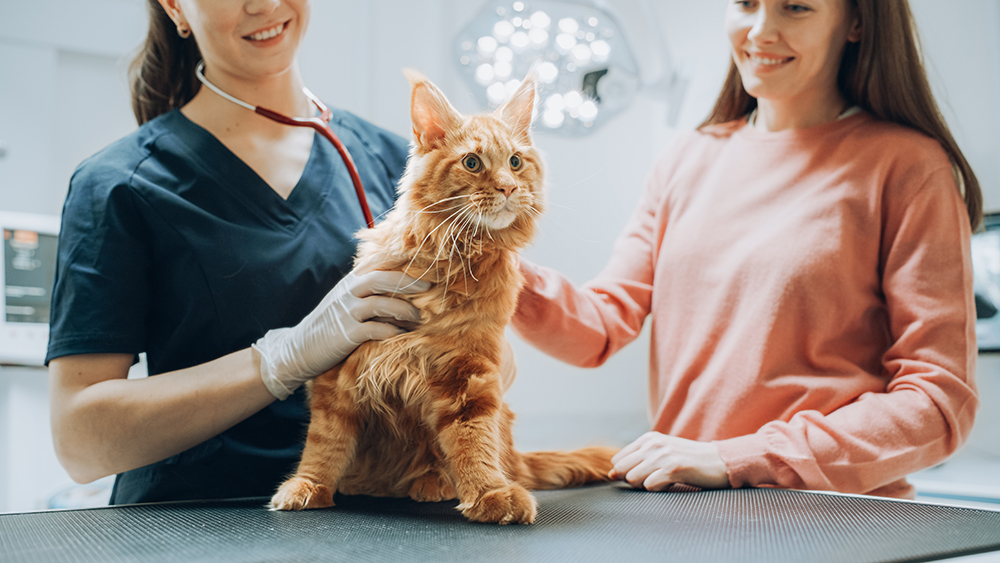

Frequently Asked Questions
Why Is My Cat Hissing at Me?
Hissing is often a sign of fear or feeling threatened. Your cat may be trying to let you know they feel uncomfortable or stressed.
What Does It Mean If My Cat Growls at Other Animals?
Growling is a warning sign that your cat is feeling threatened or trying to establish territory. It’s a defensive behavior, telling the other animal not to come any closer.
How Can I Stop My Cat from Hissing at Strangers?
Gradual socialization and positive reinforcement can help ease your cat’s fear of strangers. Allow your cat to approach new people at their own pace, and reward calm behavior with treats. Keep the atmosphere calm and relaxed and be patient. It can take quite a while to gain a cat’s trust.
Is It Normal for Cats to Growl During Play?
Some cats may growl during play, especially if they are particularly enthusiastic or engaged. As long as the play is consensual, it’s generally not a cause for concern.
How Can I Tell If My Cat’s Angry Sounds Are Due to Stress?
Besides angry cat sounds, signs of stress in cats can include changes in eating habits, excessive grooming, hiding, and avoiding interactions. If you suspect stress, try to identify and address the source as quickly as possible to help get your cat back to normal.

Conclusion
Cats make several angry sounds that can include hissing, growling, yowling, and screaming. Your cat will usually make these sounds when they are unhappy or in pain, but it is most common when the cat is feeling threatened by another person or animal.
You can help calm your cat by giving them plenty of space and several spots to hide throughout your home. Keeping the environment calm and relaxed can help them feel more at ease, and positive reinforcement techniques, like treats and praise, can help speed up the process of getting over what’s bothering them.
If other symptoms, like changes in eating habits, excessive grooming, and hiding, accompany the angry sounds it could be a sign of an underlying health problem, so contacting a vet is a good idea.
Featured Image Credit: Slava Dumchev, Shutterstock
Contents
- The 4 Angry Cat Sounds
- How to Calm Your Cat
- Frequently Asked Questions
- Why Is My Cat Hissing at Me?
- What Does It Mean If My Cat Growls at Other Animals?
- How Can I Stop My Cat from Hissing at Strangers?
- Is It Normal for Cats to Growl During Play?
- How Can I Tell If My Cat’s Angry Sounds Are Due to Stress?
- Conclusion



